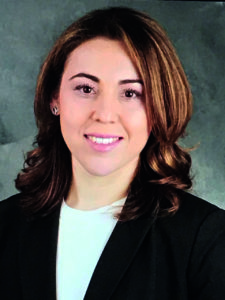
Since March 2020, my life has literally spiraled out of control both personally and professionally. The COVID-19 pandemic shattered my life, and I am still left picking up the pieces, wondering if it will ever be put back together again. Mid-March in Montreal, my licensing exam—for which I spent months preparing and taking time away from my year as chief resident— was postponed a week before I was supposed to write.
After spending roughly three weeks in my own study quarantine, diligently reading my Rutherford textbooks, I was somewhat oblivious to the raging COVID-19 virus. I quickly realized the severity of the pandemic when the Royal College of Physicians and Surgeons of Canada postponed all exams for the first time in its history. The day I found out my exam was postponed, I called my supervisors telling them I would be returning to clinical duties immediately and asking how I could help. I was assigned to one of the COVID-designated hospitals, and assisted any way I could.
Given I was helping in one of the these hospitals, I felt somewhat like a leper to family and society—I couldn’t physically be with those I loved and couldn’t even go grocery shopping, as most stores initially wouldn’t allow those in contact with the virus—including healthcare professionals—to shop. This proved to be an emotional challenge and my first taste of social isolation.
My residency in vascular surgery ended in a way I could never have imagined—no graduation, no team dinner, no farewell parties with all allied healthcare professionals on our vascular units, and certainly no farewell hugs. Those who know me know how I love to give hugs—an act of two hearts literally coming together and, in my mind, a place of courage and vulnerability.
It was certainly not the goodbye I foresaw for a group of individuals I came to call family—a relationship spanning roughly a decade, especially for those who knew me as a keen, enthusiastic, and energetic medical student. Without much of a goodbye, I left my home and family in Montreal and embarked on a solo journey on an international flight to Belgium. I was off to pursue a fellowship before international borders closed again. I quickly found myself physically and emotionally isolated.
The Belgian response to COVID-19 was similar to that seen in Canada. Masks were mandatory, social distancing was respected. Despite these efforts, Belgium was hit hard in a second wave as the European Union nation with the highest rate of COVID-19 infections. The country locked down for a second time in November, and operating rooms were likewise ramped down as well. Plans of seeing loved ones back home in Montreal or having family come to see me in Belgium were quickly abandoned. Firm restrictions in both countries and ongoing lockdowns made sure of this.
These somber emotions of isolation, disconnection and vulnerability are not unique to me, but rather a collective feeling, consciously or unconsciously. Along with these feelings of isolation come lack of control, anxiety and overwhelming thoughts as we turn more and more inwards into ourselves. As I write, I sit alone in my apartment, in full lockdown like most areas in the world; it’s just me and my monkey mind, as the author Jay Shetty puts it in his book, “Think Like a Monk.” The monkey mind is a Buddhist term describing unsettled, restless and uncontrollable thoughts, like a monkey whimsically swinging from branch to branch.
Thoughts flash across my mind, and, for whatever reason, they seem busier than ever with scheduled webinars, Zoom meetings, papers, grants and presentations. I feel pulled in almost every direction and a distinct lack of direction sitting behind a screen. Although I am virtually connected, I feel as lonely as I have ever been before. Radical ideas settle in. Ideas that suggest giving it all up and trying to go find some inner peace in some ashram in India like my friend, Jay—my monkey mind in full swing now. Pressure sets in over my chest and heart as if a drum were beating against it, growing louder and louder. And just like I have no control over my own panging heartbeat, I feel like I have lost all form of control in my life as well.
As I sit alone and reflect, I think I overestimated the healing power of community and touch—of how the touch of a comforting hand on mine, a warm hug, a kiss, could just dissipate all worries and anxieties, but also bring clarity and heal the mind. I look to my patients who are alone, isolated with even bigger existential worries, and how they must long for a healing touch, whether they know it or not. I long for the day our healing hands could unapologetically and unfearfully reach out, touch, and heal.
Laura Marie Drudi, MD, is a limb salvage fellow at Az Sint Blasius hospital in Dendermonde, Belgium. She is the resident/fellow editor for Vascular Specialist.












